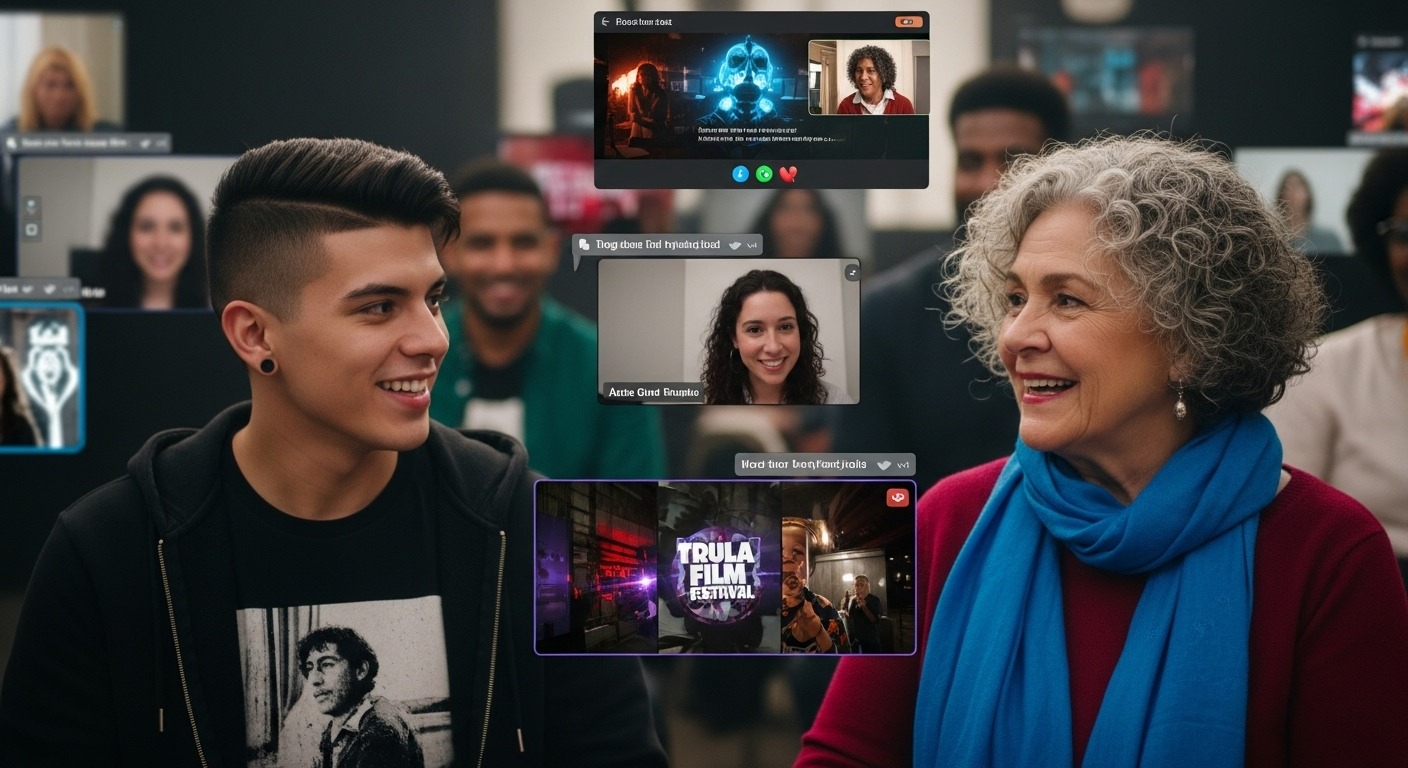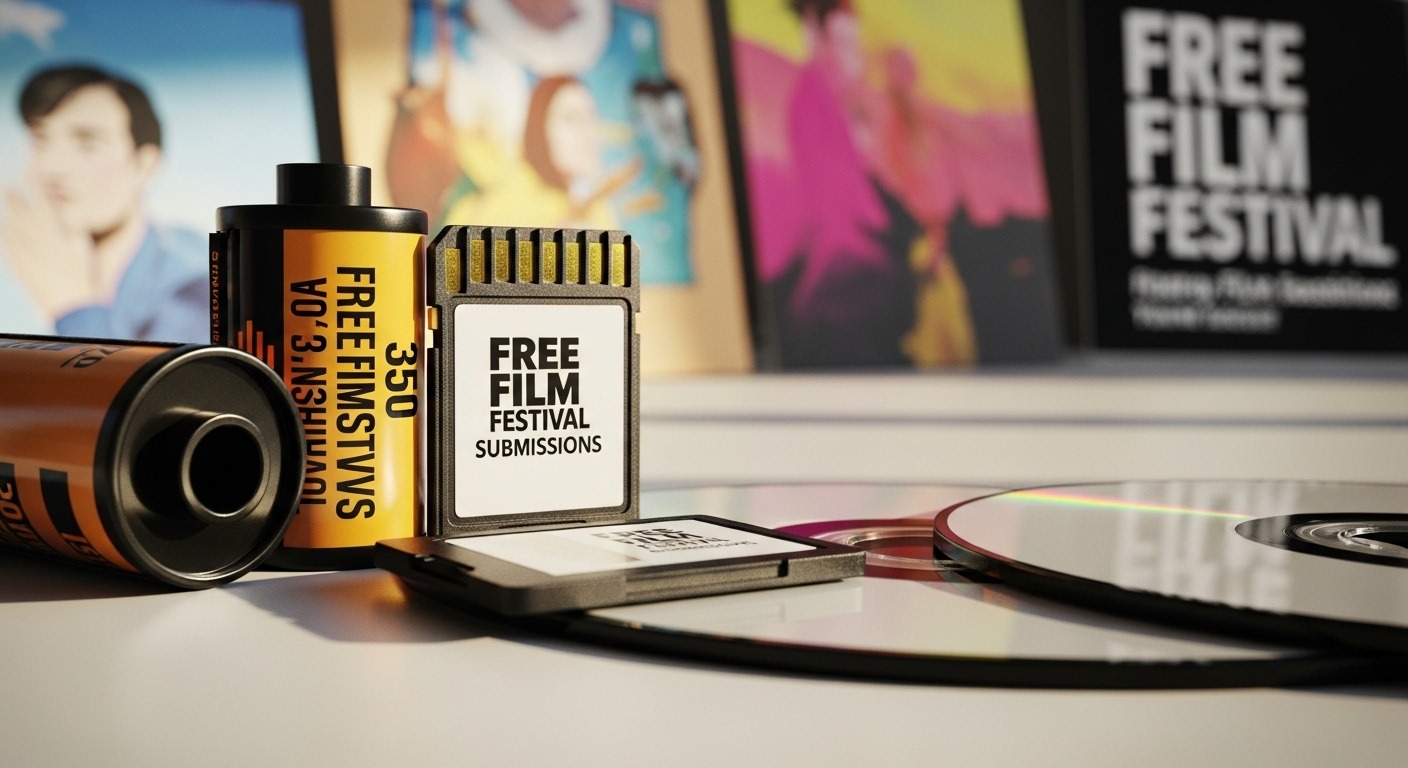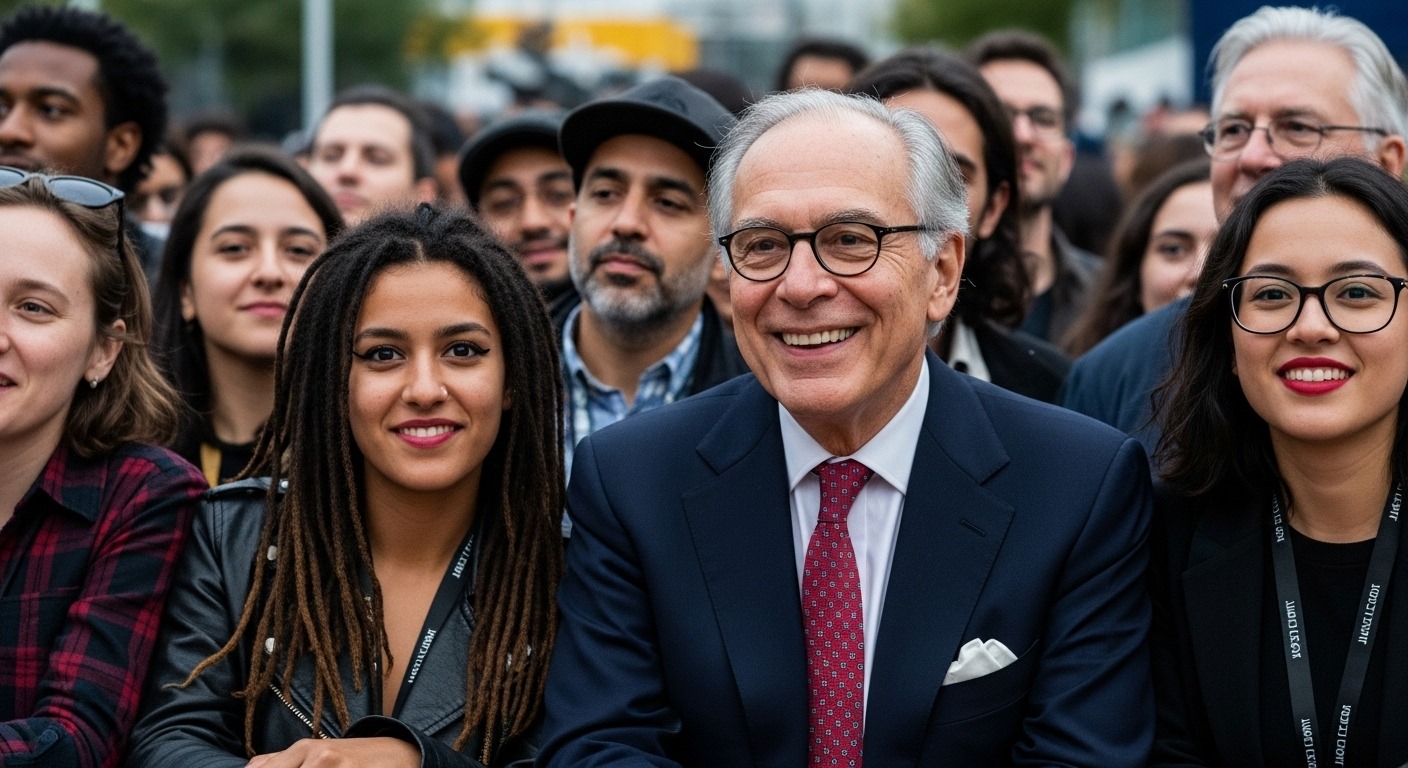A film festival is more than just a place to watch movies; it’s a dynamic ecosystem teeming with creative energy, industry movers, and passionate cinephiles. For filmmakers and industry professionals, it represents an unparalleled opportunity to forge connections that can propel careers, ignite collaborations, and even secure funding or distribution for projects. However, “networking” can often feel daunting, aggressive, or insincere.
This article will guide you on how to approach film festival networking with authenticity, strategy, and respect, transforming potentially awkward encounters into genuine connections that benefit all parties.
1. Why Network at a Film Festival? The Undeniable Value.
Beyond the captivating screenings and insightful Q&As, film festivals are critical hubs for professional growth and development:
Industry Connections: Meet producers, distributors, sales agents, festival programmers, financiers, and studio executives who can open doors to new opportunities.
Collaboration Opportunities: Discover potential collaborators – directors, writers, cinematographers, editors, actors – for your next project.
- Audience & Community: Connect with fellow filmmakers and enthusiastic film lovers, expanding your creative community and receiving direct feedback on your work.
- Career Visibility: Increase your personal and project’s profile within the industry.
2. Before You Go: Strategic Preparation is Key.
Effective networking starts long before you set foot in the festival venue.
- Define Your Goals: What do you hope to achieve? Are you seeking funding for a specific project, looking for a sales agent for your completed film, or hoping to meet collaborators for a future endeavor? Clearly defined goals will help you target your efforts.
- Research Attendees (If Possible): Many festivals provide accreditation lists or list featured guests and speakers. Use this, along with LinkedIn and IMDb Pro, to identify key individuals you’d like to meet. Understand their work and interests.
- Perfect Your “Elevator Pitch”: This is a concise, compelling summary of who you are, what your project is, and what you’re seeking (e.g., “I’m a director with a completed independent drama looking for a sales agent,” or “I’m a screenwriter developing a sci-fi series, hoping to connect with producers in that space”). Keep it to 15-30 seconds, clear, and intriguing. Practice it until it flows naturally.

- Update Your Online Presence: Ensure your LinkedIn profile, personal website/portfolio, IMDb page, and film-related social media accounts are polished, professional, and showcase your best work. These are often the first places people will look after meeting you.
- Prepare Business Cards/Digital Cards: While digital contact exchange is common, a physical card still makes a lasting impression. Have both options ready. Consider a digital card with a QR code that links directly to your portfolio, reel, or film’s website.
- Polish Your EPK/Screener Link: If you have a film ready to share or a project you’re actively pitching, ensure your Electronic Press Kit (EPK) is updated and your screener link (preferably a secure, password-protected Vimeo) is easily accessible, but only share it when appropriate and requested.
- Download the Festival App: Most major festivals offer an app with schedules, venue maps, and sometimes even attendee lists or direct messaging features. Familiarize yourself with it to navigate efficiently.
3. During the Festival: Seizing Every Opportunity.
The festival itself is a flurry of activity. Be present, observant, and ready to engage.
- A. Screenings & Q&As:
- Arrive Early, Stay Late: This gives you more time to mingle before and after the event.
- Engage Thoughtfully: Ask intelligent questions during Q&As. This showcases your insight and makes you noticeable to filmmakers and industry members present.
- Post-Screening Mingle: The lobby or bar after a screening is a prime spot. People are often energized by the film and open to discussing it. This is a natural icebreaker.
- B. Industry Panels & Workshops:
- Target Relevant Sessions: Attend events directly related to your goals and interests.
- Ask Insightful Questions: A well-researched question in a Q&A session can help you stand out and potentially lead to a direct conversation with a panelist afterward.
- Approach Politely: After a session, panelists are often surrounded. Wait for a natural opening, offer a brief compliment on their insights, and make a polite, concise introduction.
- C. Festival Lounges & Hubs:
- Many festivals have dedicated industry lounges, coffee areas, or common spaces. Make yourself visible, but don’t just sit glued to your phone. Be approachable.
- D. Parties & Receptions:
- These are excellent for relaxed mingling. Maintain professionalism and avoid over-indulging in alcohol. Focus on genuine conversation rather than a hard sell.
- E. “Happy Hour” & Informal Meet-ups:
- Keep an eye out for less formal gatherings. Sometimes the most valuable connections are made in casual settings outside the main official events.
- F. Accidental Encounters:
- Be ready to network anywhere: in line for a screening, waiting for coffee, or on public transport. A simple “Are you enjoying the festival?” can open a door.

5. The Art of the Approach: Be Genuine, Not Transactional.
This is perhaps the most crucial aspect. People are at festivals to celebrate film, not to be sold to.
- Be Approachable: Smile, make eye contact, and maintain open body language. Don’t look glued to your phone or perpetually stressed.
- Listen More Than You Talk: Show genuine interest in what others are working on, what brought them to the festival, or their insights on a film or panel. People love to talk about themselves and their passions. Ask open-ended questions.
- Find Common Ground: The easiest way to start a conversation is to talk about the film you just watched, a panel discussion, or a general festival experience. “What did you think of that Q&A?” or “Have you seen anything great yet?”
- The Gentle Pitch: Only offer your pitch if there’s genuine interest from the other person. Listen for cues. If they ask what you do or what you’re working on, then it’s your turn. You can even ask, “Would you be open to hearing about a project I’m working on?” This respects their time.
- Respect Boundaries: Be aware of social cues. If someone is deeply engaged in a conversation, looks busy, or seems unreceptive, politely excuse yourself. Don’t force connections or linger unnecessarily.
- Collect Contact Info Gracefully: After a meaningful conversation, simply ask, “It was great chatting. May I add you on LinkedIn?” or “Could I get your card?”
6. After the Festival: The Crucial Follow-Up.
The real work of networking begins after the festival. Many connections are made but lost due to poor follow-up.
- Organize Contacts Immediately: As soon as possible (ideally that same day or evening), make notes on who you met, where, what you discussed, and any agreed-upon next steps. This context is vital for personalized follow-ups.
- Personalized Follow-Up (Within 24-48 hours):
- Send a brief, personalized email or LinkedIn message.
- Reference a specific detail from your conversation to jog their memory (“It was great discussing [Film X] with you at the [Venue Y] after the screening…”).
- Briefly reiterate your film/project if it was a key part of your discussion.
- Suggest a clear, low-pressure next step (e.g., “Would love to send you my screener if you’re open to watching it,” or “Perhaps we can connect again at [upcoming industry event/online]”).
- Don’t Spam: Never send generic mass emails. Each follow-up should be tailored to the individual.
- Nurture Relationships: Building a strong network is a long-term investment. Don’t just reach out when you need something. Engage with their work on social media, share relevant articles, or send a brief “checking in” message periodically.

7. Common Pitfalls to Avoid.
- The “Hard Sell” Immediately: Don’t hand someone your card and launch into a pitch without a conversation. It’s off-putting.
- Being Overly Aggressive or Desperate: This makes you seem unappealing and unprofessional.
- Not Listening: Making the conversation entirely about yourself. Reciprocity is key.
- Being Unprepared: Lacking a concise pitch or readily available contact information.
- Forgetting Names or Context: This undermines the authenticity of your follow-up. Use your phone to make quick notes after each interaction.
- Over-Drinking: Maintain a professional demeanor. Alcohol can loosen inhibitions, but it can also lead to regrettable interactions.
- Only Targeting “Big Names”: While meeting industry titans is exciting, don’t overlook your peers. These connections can be equally, if not more, valuable in the long run as you grow together in the industry.
- Complaining or Gossiping: Maintain a positive attitude. Negative talk reflects poorly on you.
Conclusion: Building Your Tribe in the World of Film.
Networking at a film festival is less about collecting a stack of business cards and more about cultivating genuine, mutually beneficial relationships. By approaching interactions with authenticity, preparedness, active listening, and thoughtful follow-up, you can transform the daunting task of networking into a fulfilling process of building your professional tribe. Embrace the serendipity, celebrate cinema, and let your passion guide you to the connections that will illuminate your path in the world of film.

I am a highly experienced film and media person who has a great deal to offer to like-minded individuals. Currently working on several exciting projects, I am a film and media practitioner for over a decade. I have achieved a great deal of success in my professional career.





